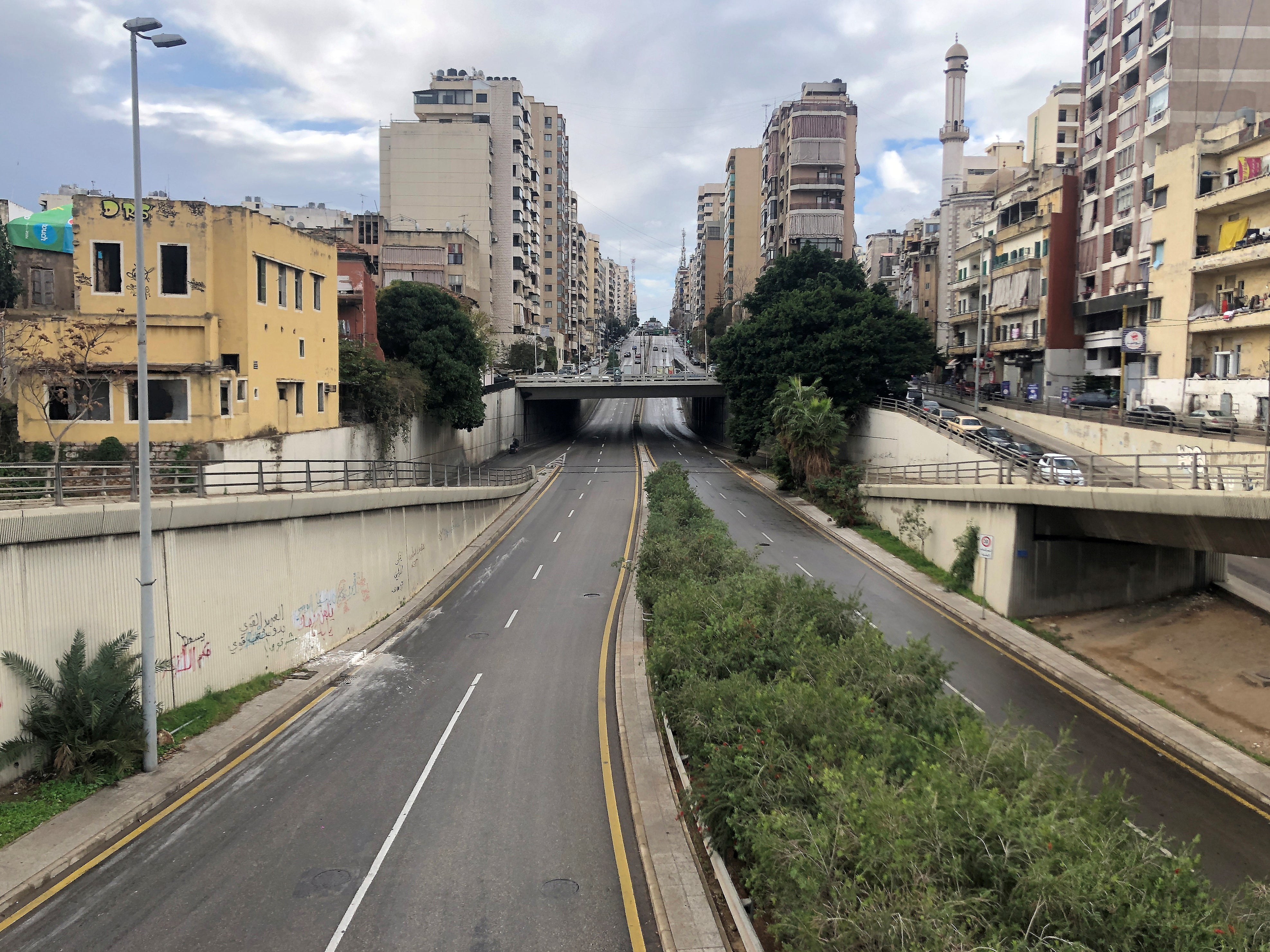
Lebanon has entered an 11-day round the clock curfew in a last-ditch attempt to rescue the country’s overwhelmed healthcare system, as ICU beds reach near full capacity and medics report coronavirus patients being dumped at hospital doors or treated in their cars.
The measures are among the toughest yet announced by any country and could signal what is to come for states struggling to deal with the new Covid-19 variant. They require residents to request permission for an hour-long permit to leave the house for “emergencies”, including going to the bakery, pharmacist, hospital or airport. All supermarkets, stores and restaurants were also shuttered except for delivery.
Lebanese authorities announced the additional restrictions, in a country of more than six million people, as daily infections reached an all-time high of nearly 5,500 cases a day in the aftermath of the holiday season. Health measures had been relaxed, allowing bars and restaurants to remain open, during the Christmas and the New Year period when tens of thousands of Lebanese expats flew back to the country for the celebrations.
The World Health Organisation said on Thursday that Intensive Care Unit beds across the country had reached 94 per cent capacity while regular beds were at 85 per cent capacity.
The country’s own caretaker health minister Hamad Hassan was hospitalised on Wednesday just days after being photographed at a dinner with senior health and economy officials, where few are wearing masks.
Healthcare workers told The Independent the healthcare system was at the “end of its capacity” and was running out of beds, oxygen tanks and ventilators.
The director of the Bouar Governmental hospital even told Lebanese network MTV they were treating some Covid-infected patients in cars because the hospital had reached maximum capacity.
At the Rafik Hariri University Hospital in Beirut, the country’s main Covid-19 treatment facility, hospital director Dr Firass Abiad said their ICU beds had been at 100 per cent capacity for more than 10 days.
“We have six patients in our ER waiting for an ICU bed,” he told The Independent.
“We have dug very deep into our resources. The system is towards the end of its capacity. This lockdown is important. I don’t see any other way out,” he added.
Over 230,000 people have been infected with coronavirus while 1740 have died from the virus in Lebanon since the pandemic started last spring.
Lebanon’s health care system has struggled to deal with the surge of infections as it has been pounded by a devastating financial crisis which has seen the local currency crash by 80 per cent, massively impacting imports of medicines and medical supplies.
This was compounded by the explosion on 4 August that destroyed swathes of the capital Beirut, killing nearly 200 people and damaging several hospitals.
It has meant that the hospitals, long considered among the best in the Middle East, have struggled to pay staff, keep equipment running and secure necessary medical supplies.
The situation became critical in the aftermath of the holiday season when cases surged.
Rayane Lakiss, a newly graduated medic who has been called in to help cover staff shortages, tweeted about the chaotic scenes at the hospital she works at on Sunday when ambulances were leaving critical patients at their doors.
She told The Independent the hospital, which she had asked not to be named, was trying to set up special negative-pressure ICU rooms for Covid-19 patients but had been overwhelmed before they could finish preparations.
They had to put Covid patients in normal wards risking everyone in the hospital, and one woman, who had lost consciousness at home, was left by paramedics on a stretcher at the entrance of the building.
“We told them that we cannot take her… but they just left here in front of the hospital doors, so we had to put the patient in the triage room,” she said.
“The patients’ children begged us to take every penny they have just for us to admit her,” she added.
She said since then they have had to open a Covid floor even though there are no negative pressure rooms, posing a major risk of infection.
Policemen control cars at a checkpoint on the Fuad Shahab bridge known as the ‘Ring’ in Beirut
(AFP/Getty)
“The ER is always full of boarding patients meaning if a life-threatening condition comes in, we would have to work on them in the hallways.”
The medics hope that the new curfew and lockdown will give the hospitals breathing space before they completely collapse. But the punishing restrictions are piling pressure on Lebanese citizens who are struggling with poverty and hunger.
The United Nations has said that now over 50 per cent of the population live under the poverty line, meaning they live off just a few dollars a day.
This means many families cannot afford to stock up on a week’s worth of food, while supermarkets have said they do not have the capacity to switch to delivery, which is expensive.
The most impoverished, including those among Lebanon’s extensive refugee population, do not have access to smartphones and the internet to be able to submit the requests online to be able to move.
The World Bank this week approved a $246m (£176m) loan to Lebanon to provide emergency cash assistance to nearly 800,000 struggling Lebanese struggling but questions have been raised over how the money will be distributed.
With a turbulent exchange rate and a thriving black market, the World Bank said it will dispense the assistance in local currency, using a conversion rate which activists said was about 40 per cent less than the black-market rate. Many have argued that Lebanon’s banks, which are short on foreign currency, could pocket the difference.
 RSS Feed
RSS Feed















 January 15th, 2021
January 15th, 2021  Awake Goy
Awake Goy  Posted in
Posted in  Tags:
Tags: 













